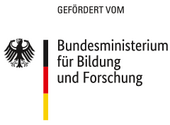Robotic-assisted surgery is one of the fastest growing fields within clinical surgeries and the healthcare domain. Surgeons use different types of robotic systems for many complex procedures involved during critical surgeries, like adjusting the focus of the microscope, switching the viewing angle of the surgery area, and changing the focal plane throughout the operation. Joint surgery with a robotic arm enhances precision with smaller incisions, offers flexibility and greater movement control during the operation, and allows them to visualize the operation site more than traditional techniques. These assistive devices rely on the surgeons' commands or actions to control the devices without providing a much deeper level of understanding of intent recognition to enable passive assistance. Additionally, it is crucial to accurately differentiate between real and false intents, as direct control of the assistive devices might get influenced by the person controlling the device's mental state or psychological stress. There are various reasons for mental stress during surgery, for instance, stressful days, emergency cases, on-call duties, and many more. Thus, we should reliably estimate surgeons' workload levels during different steps in surgery to interact better and communicate the surgeon's intention with assistive devices. In the future, robots or assistive devices must semantically understand surgeons' intents before surgeons perform any steps to complete a given task. It is essential to focus on the other underlying factors to enable this advanced interaction mechanism. The assistive device should be capable of differentiating false and real intents and monitoring the mental state of the surgeon interacting with assistive devices. These contributing factors play a significant role in achieving a successful interaction. Thus, the project focuses on building an intelligent multi-modal assistive system based on the surgeon's measured brain activity, heart rate, and eye tracking to assist in intent recognition even in complex mental workload situations.
Partner
Zeiss group

